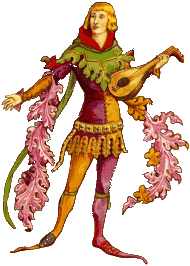 This week, I had the opportunity to stand guard over Paul McCartney's amplifiers. It was the day before his first outdoor concert in the Atlanta area since 1965, when he was then playing with the Beatles. A friend had an opportunity to play security guard, along with a couple of hundred others and offered me the chance to join him. Thinking I was doing him a favor, I was glad to do it. My wife and I went out, stood at attention for 9 hours in a boiling summer sun, and did get a glimpse of Sir Paul (I had no idea he was so short). He had a two hour "sound check," a mini-concert, much to the joy of the staff and some onlookers from outside the newly erected fences. I was amazed that as this aging entertainer made his entrance into the park under police escort, screams from the entrance were as wild and raucous as they must have been 44 years ago, though far fewer in number.
This week, I had the opportunity to stand guard over Paul McCartney's amplifiers. It was the day before his first outdoor concert in the Atlanta area since 1965, when he was then playing with the Beatles. A friend had an opportunity to play security guard, along with a couple of hundred others and offered me the chance to join him. Thinking I was doing him a favor, I was glad to do it. My wife and I went out, stood at attention for 9 hours in a boiling summer sun, and did get a glimpse of Sir Paul (I had no idea he was so short). He had a two hour "sound check," a mini-concert, much to the joy of the staff and some onlookers from outside the newly erected fences. I was amazed that as this aging entertainer made his entrance into the park under police escort, screams from the entrance were as wild and raucous as they must have been 44 years ago, though far fewer in number.Which brings me to my dissertation. It occurred to me that in one century, we have elevated a class of our citizenry from the bottom to the top. This is not without historical precedent as a catalyst of some sort lifts a group within a culture to special importance. Rome had the Praetorian Guards, raised from the obscurity of the legions to become the elite troops guarding the city and Caesar himself. Greece had the Spartan male. In our culture, there was always a fascination with the gypsy-like entertainers known as wandering minstrels and actors. How, in a generation, did they become so revered within our society?
It would be difficult to deny that musicians, actors and so forth have been lofted onto the shoulders of western civilization with an almost religious fervor. There was a time when the citizenry would leave their arduous life and gather in the town square to be amused by these characters. Today, we live in a time when we now hang on their every word. As a people we have become adoring, bemused and worshipful of them. Anthropologists might suggest that through the industrial revolution, we created a massive leisure class that felt drawn to diversions heretofore not tenable, if only from the lack of time to devote to them.
It is my thought that technological advances, primarily through one Thomas Alva Edison, brought these diversions to seed. The phonograph, the moving picture and other inventions allowed everyone to witness the musical and theatrical talent for themselves, at their leisure. As these mediums gained acceptance in the general culture, it was only natural that some of these artists would achieve a degree of fame and in some cases, fortune. With fame and fortune come power. Power is a powerful aphrodisiac. There are basically two subsets of any social fabric: those who have power and those who are drawn to it.
My epiphany has been born during a long gestation of watching others around me in their fascination with our Star Culture. I certainly do not mean to suggest that I am free of the effects of this. As a teenager, I remember the overwhelming awe when listening to the music of the Beatles and the stage presence of actors like John Wayne. It would have been impossible to have met them personally, I'm sure, without swooning over being around these idols. Through the process of simply growing older, much of that fascination dissolved. As musicians self-destructed and actors took on political views somewhere left of Chairman Mao, I soon lost interest in looking at entertainers as anything more than an amusing respite from a working life.
It's difficult to decipher just what this all means as a facet of the ethos of our country. I suppose we can leave that to the historian. I also suspect that were I in the company of one of the entertainers whom I enjoy, it would probably be difficult to suppress an increase in my heart rate.



